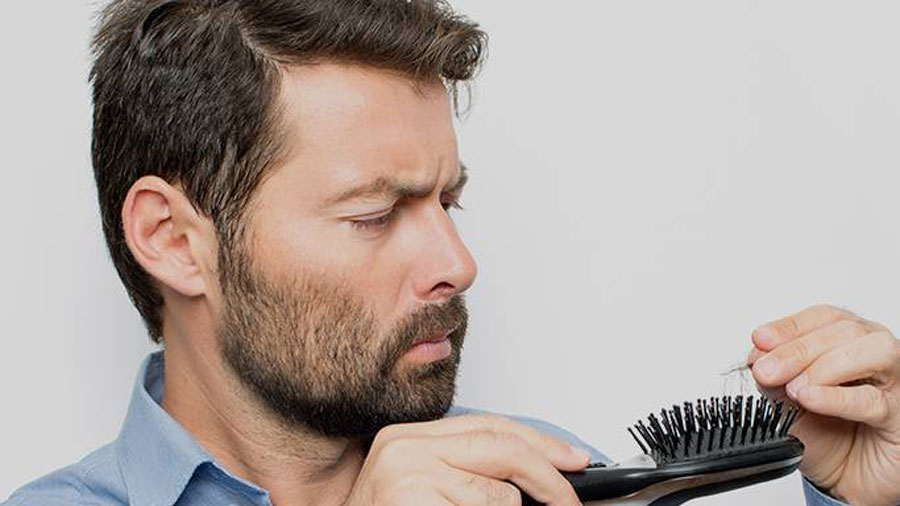The Role of DHT in Hair Fall
Hair fall is a common concern for both men and women, with DHT (dihydrotestosterone) being a primary cause. While losing 50–100 strands daily is normal, excessive hair fall can lead to thinning hair, receding hairlines, and bald patches. Understanding the role of DHT and other contributing factors is crucial to tackling this issue effectively.
In men, excessive hair fall can lead to thinning hair, receding hairline, and even bald patches. While several factors contribute to hair fall, understanding them can help us tackle this problem more effectively.
How DHT Affects Hair Follicles
One of the primary reasons behind excessive hair fall is the dihydrotestosterone (DHT) hormone. DHT is a by-product of testosterone, an important hormone found in both men and women. While testosterone is important for various bodily functions, excessive levels of DHT can lead to hair loss.
When DHT interacts with hair follicles, it shortens their growth cycle and makes them weak. This results in thinner hair strands, which eventually fall out. Over time, if the hair follicles are continuously exposed to high levels of DHT, they may become unable to produce new hair, leading to permanent hair loss.

Key Factors Triggering DHT and Hair Fall
Several factors can trigger the production of the DHT hormone, exacerbating hair fall. A few common ones are listed below:
1. Water Quality and Its Impact on Hair Health
Believe it or not, the water we use to wash our hair can contribute to hair fall. The mineral content in water varies depending on the source, and certain minerals, like calcium and magnesium, can interact with DHT. When these minerals combine with DHT on the scalp, they may block the hair follicles and impede hair growth. This can result in increased hair fall over time.
2. Environmental Factors and Hair Loss
Moving to a new environment can also affect our hair health. Different regions have varying climatic conditions, which can impact the overall health of our scalp and hair follicles. For example, exposure to extreme heat or cold weather can lead to dryness, itchiness, and hair breakage. These conditions, combined with the presence of DHT, can accelerate hair fall.
3. Genetics and Hair Fall: A Hereditary Connection
Genetics play a significant role in determining our susceptibility to hair fall. If you have a family history of hair loss, especially among your direct relatives like parents or siblings, you may be more prone to experiencing excess hair fall. This is because certain genes can make hair follicles more sensitive to the effects of DHT, leading to premature hair loss.
It is important to note that while these factors can trigger the DHT hormone and contribute to hair fall, they are not the sole causes. Other factors, such as stress, nutritional deficiencies, hormonal imbalances, and certain medical conditions, can also impact hair health.
Read more: Is Hair Transplant a Good Option?
Preventing Hair Fall: A Holistic Approach
Understanding the causes of hair fall is the first step towards finding an effective solution. By recognising the role of the DHT hormone and the various factors that trigger it, we can make informed choices about our hair care routine and seek appropriate treatments to combat hair fall. Remember, addressing hair fall requires a holistic approach that considers both internal and external factors influencing hair health. So, take proactive steps to care for your hair and consult with our Hair Expert at Looks Studio if you notice excessive hair fall. We can explain to you the actual reason behind hair fall in your case and can give you a customised solution.
Read more: Best age for a Hair Transplant? : Guide-Looks Studio (2025)

